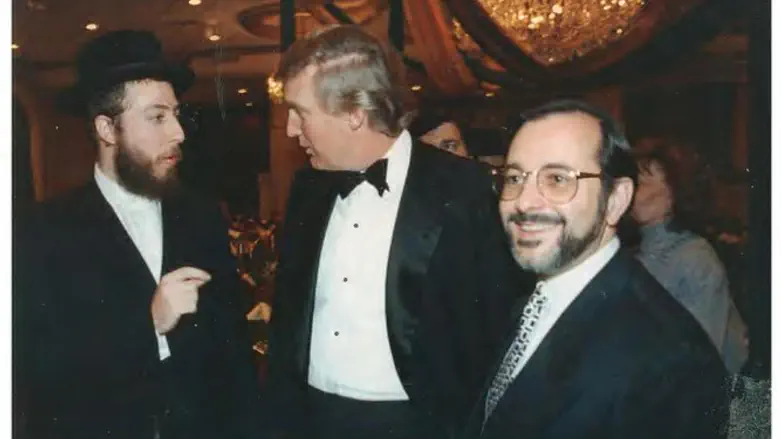
Thank You Judge Noach Dear, for the influence you had on my life and on the lives of your constituents and those who were often neglected by other public officials.
I must admit, I cannot say I knew Judge Noach Dear on an extensive personal basis, however his trailblazing legacy of a new era in the political participation of the frum (observant Jewish) community in politics greatly impacted me and all other frum Jews in the public sector.
I grew up as Judge Dear climbed the political ladder as one of the first yarmulka-laden clearly Jewish figures in that field. I learned of his first election victory at an influenceable stage in my life, and really in the life of any Jewish boy, Bar Mitzvah age. I was perpetually in awe of him as a teenager, amazed by his ability to leverage the growing political power of the frum community. Noach always wore his Jewishness on his sleeve, especially in a time where being frum was not widely accepted in politics.
His ability to leverage a number of opportunities and political-power sources rivaled those of corporate executives. Even without the extent of a political leverage we now have, Judge Dear was able to maneuver the most convoluted and difficult political throughways. Even his critics acknowledge his skillfulness in managing leaders of a variety of industries, including former real estate industry leader now President of the US, Donald Trump. I was lucky to learn of his political maneuvering skills from the man himself.
Through his arduous work as a City Council Member he constantly supported the moral obligations of the frum community. Additionally, he protected the defenseless, Jewish or not, including: horse carriage drivers and socially conservative New Yorkers who had few other avenues to influence local politics. Whether you agree with his beliefs, and as extension the beliefs of his constituents, or not, you must fundamentally agree that his role in adding a more diverse set of opinions to the otherwise largely homogenous local politics of our city was advantageous for a healthy democracy.
As he was elected to the State Supreme Court, his tradition of standing up for the “little-guy” followed him. He was best known for helping those struggling under the usurious rates of credit card debt, saving many families from crippling financial hardships that could have meant them ending up on the street.
Even famous liberal papers have conceded his role in serving the underdog, peppered amongst their criticisms. His advocacy on behalf of Soviet Jewry and adds to his role as a model for a generation of politically informed and active Orthodox Jews.
Now it is fashionable to fight for those at the bottom of the socio-economic chain, but Judge Dear pioneered in this field ages before this was in the political vogue.
This is all well and good. but what are the implications of his legacy for our times? His message is extremely important for the teetering political landscape our nation balances itself on; a man who could stand up for the rights of the 99% without calling for an overturning of the system. His legacy shows that though our country and our political institutions may have flaws, they can improve, they do not need to be scrapped as many from the fringes of the political spectrum claim.
Judge Noach Dear stood for faith in a system that may not have adequately represented his community. When he felt this inadequacy, he did not convulse in a revolutionary fever, he made a commitment to change it himself using the highways our system has laid out for us.
As we remember, we pay tribute to this trailblazer in our communal politics and as another Rosh Hashannah approaches, let us remember this coincidentally timely lesson: your benefit can make real tangible change, hope is never lost.
Ezra Friedlander is the CEO of The Friedlander Group a public policy consulting group based in NYC and Washington, DC
